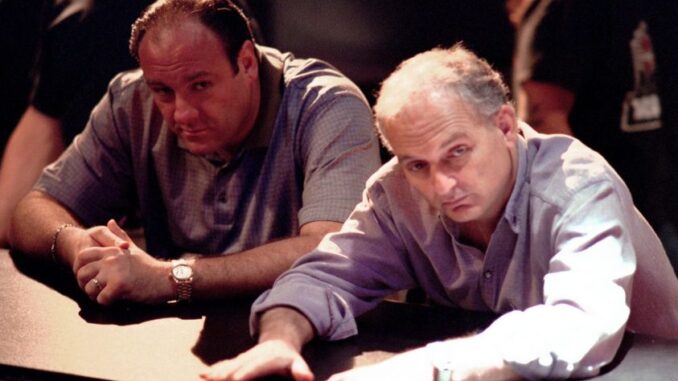
David Chase and The Sopranos: A Sensational Exploration of TV’s Most Iconic Show
When it comes to groundbreaking television, few shows have had the impact of The Sopranos. Created by David Chase, this crime drama became a cultural touchstone, not just for its storytelling but also for its innovative approach to character development, thematic depth, and real-world complexity. In this article, we’ll dive into the genius behind The Sopranos, exploring David Chase’s unique vision, the legacy of the show, and why it remains a vital part of TV history.
The Visionary Behind The Sopranos: David Chase’s Creative Genius
David Chase wasn’t just a TV writer; he was a visionary who changed the landscape of television forever. When he first conceived The Sopranos, he didn’t just want to tell a typical mob story. Instead, he sought to humanize the characters, particularly Tony Soprano, and bring viewers into a world that was gritty, complex, and filled with moral ambiguity.

A Mob Story with a Twist: The Birth of Tony Soprano
Tony Soprano, played by the legendary James Gandolfini, was unlike any mob boss viewers had seen before. He wasn’t just a ruthless criminal; he was a man struggling with anxiety, depression, and the demands of balancing his family life with his role as the head of a criminal empire. This made Tony one of the most compelling antiheroes in TV history.
Chase’s decision to make Tony a deeply flawed character was a stroke of genius. By delving into Tony’s psychological struggles, particularly through his therapy sessions with Dr. Jennifer Melfi, Chase made The Sopranos more than just a mafia show—it became an exploration of the human condition.
The Influence of David Chase on Modern TV
David Chase’s work on The Sopranos influenced a generation of television creators. The series broke away from traditional TV formulas, opting for long-form storytelling and complex, often unresolved plotlines. Chase’s approach to antiheroes, ambiguity, and the exploration of mental health became a blueprint for shows like Breaking Bad, Mad Men, and Better Call Saul.
The Power of The Sopranos: Why It’s Still Relevant Today
Though The Sopranos aired its final episode in 2007, its relevance hasn’t waned. In fact, the show’s legacy has only grown stronger in recent years, as it continues to influence new generations of viewers and writers.
Mental Health and the Mafia: Breaking New Ground
One of the most significant aspects of The Sopranos was its exploration of mental health, particularly through Tony’s therapy sessions. By giving a mafia boss the chance to confront his emotions, anxieties, and inner demons, Chase showed that even the most hardened criminals are vulnerable. This was groundbreaking at the time, as mental health was rarely addressed in such a nuanced way in mainstream television.
The depiction of Tony’s therapy sessions with Dr. Melfi humanized the character and allowed the audience to empathize with him, even as he committed unspeakable acts. This unique blend of psychology and crime made The Sopranos more than just a mob story—it became a study of human nature.
The Enduring Legacy of Tony Soprano
Tony Soprano’s journey remains one of the most iconic in television history. His struggles with power, family, loyalty, and morality continue to resonate with audiences. The final scene of The Sopranos, with its infamous cut to black, left viewers questioning Tony’s fate. Did he live or die? The ambiguity of the ending was a brilliant move by Chase, as it allowed the show to live on in the minds of viewers long after it ended.
The Sopranos’ Final Season: A Masterclass in Television Storytelling
The final season of The Sopranos was a culmination of everything Chase had worked toward throughout the show’s run. The narrative threads that had been built up over the years—Tony’s relationships with his family, his struggles with the mob, and his quest for meaning—came to a head in a series of intense, often emotional episodes.
The Complexities of the Final Episode
The final episode, titled “Made in America,” was the perfect conclusion to a show that had spent years exploring the complexities of its characters. Tony’s final moments, the shocking confrontation with his rivals, and the cliffhanger ending left viewers reeling. Chase didn’t offer any easy answers, leaving the audience to grapple with the ambiguity of Tony’s fate.
The cut to black at the end of the episode was, in many ways, the perfect metaphor for The Sopranos as a whole. Life is unpredictable, and not every question gets answered. The final scene left us with a sense of unresolved tension, just as we had experienced throughout the series.
The Sopranos and its Impact on Modern TV Drama
The Sopranos changed the way we look at television. It proved that TV could be as complex, rich, and artistically daring as cinema. The show didn’t just tell a story—it created a world that felt alive and real, full of moral quandaries, rich character arcs, and intricate relationships.
The Rise of Antiheroes in Modern TV
Before The Sopranos, TV was dominated by more traditional, heroic characters. But with Tony Soprano, David Chase introduced the antihero—someone who is deeply flawed, morally ambiguous, and sometimes even downright despicable. The success of The Sopranos paved the way for other antiheroes like Walter White in Breaking Bad and Don Draper in Mad Men, who have become central figures in contemporary TV storytelling.
The Legacy of Complex Characters
The Sopranos also set the stage for a shift in how TV characters are developed. No longer were characters simply “good” or “bad.” Instead, they were layered, multifaceted, and often contradictory. Chase’s ability to show the humanity behind even the most ruthless criminals has influenced how complex characters are portrayed in television to this day.
David Chase’s Post-Sopranos Projects: What’s Next for the Creator?
After The Sopranos, David Chase continued to work in television and film, but none of his projects have quite reached the cultural impact of his masterpiece. His 2021 prequel film, The Many Saints of Newark, gave fans a deeper look into the world of The Sopranos, focusing on the rise of a young Tony Soprano and his early relationships with the people who shaped him.
The Many Saints of Newark: A Look Back at the Origins of Tony Soprano
The Many Saints of Newark was a passion project for Chase, allowing him to revisit the world of The Sopranos and provide fans with more context for the character of Tony Soprano. The film focuses on the early life of Tony, his relationship with his father, and his growing involvement in the mob. While the film didn’t quite live up to the iconic status of The Sopranos, it provided a fascinating look at the origins of one of TV’s greatest characters.
Chase’s Legacy in Television and Beyond
Even after The Sopranos, David Chase remains one of the most influential figures in television. His ability to create complex characters, tackle difficult themes, and push the boundaries of storytelling has left a lasting mark on the entertainment industry. Whether he’s working on new projects or reflecting on his past work, David Chase’s influence continues to shape the world of TV and film.
Conclusion: David Chase’s Impact on Television and Pop Culture
David Chase’s The Sopranos is a cultural phenomenon that will continue to resonate for generations. Through his unique approach to storytelling, character development, and exploration of complex themes, Chase revolutionized the television industry. The show’s blend of crime, family drama, and psychological exploration remains unmatched, and Tony Soprano’s journey continues to captivate audiences worldwide. Whether you’re revisiting the series or watching it for the first time, The Sopranos remains a testament to the power of great television.
Frequently Asked Questions (FAQs)
1. What inspired David Chase to create The Sopranos?
David Chase was inspired by his interest in exploring the complexities of family dynamics, mental health, and the world of organized crime. He wanted to create a show that was both entertaining and intellectually stimulating.
2. How did The Sopranos influence other TV shows?
The Sopranos revolutionized TV by introducing the antihero, complex characters, and a darker, more nuanced approach to storytelling. It paved the way for other iconic shows like Breaking Bad and Mad Men.
